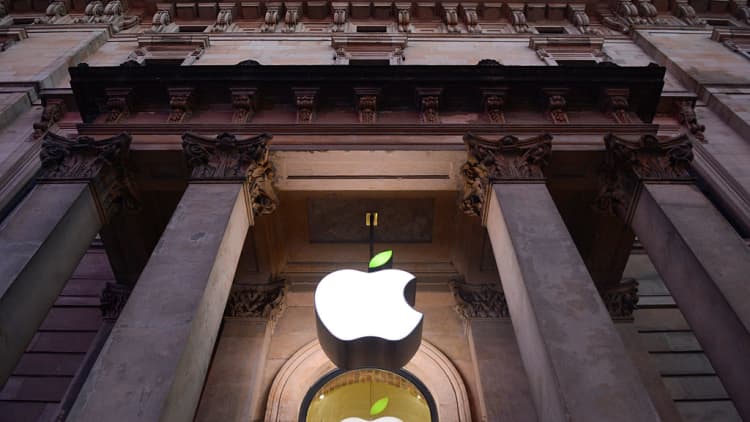
Shares of Dexcom briefly dipped on Thursday, after news that Apple may be developing technology to monitor blood sugar levels.
Shares fell as low as $72.62 a share, but last traded around $76 a share, down less than 1 percent.
Dexcom makes glucose monitoring products, including mobile apps, to help patients with diabetes. IPhone-maker Apple has been testing super secret noninvasive technology, including sensors that can shine a light through the skin to measure indications of glucose, a source told CNBC in a report published on Wednesday.
"Because it's Apple, it scares people," said Michael Weinstein of JPMorgan. "That said, what Apple is trying to do is very hard. Companies, scientists have been trying to develop noninvasive impedance sensors for years. Very hard to do, particularly without putting something on the skin."
Dexcom declined to comment on the stock move, citing a quiet period ahead of their quarterly earnings release. But Steve Pacelli, Dexcom's executive vice president of strategy and corporate development, said there would be some real challenges to Apple's approach. Pacelli said Dexcom worked closely with Apple when they released the Dexcom app.
"We certainly have an idea of what they are working on," Pacelli said. "There have been hundreds of millions of dollars spent on non-invasive technologies, but none of them have been able to achieve the clinical needs or accuracy for patients living with diabetes."
Traditional finger-stick testing means users have to prick their fingers, drawing blood to get glucose levels at each point in time. Continuous testing, like that offered by Dexcom, means users can get readings every five minutes with the wire the size of a human hair under their skin.
That type of minimally invasive technology is set to become standard within the next five years for medical applications, Pacelli said. But other noninvasive technologies, potentially including what Apple may be exploring, could be used for endurance athletes.
"Think the amount of money that people spend on athletics, running triathlons, marathons," Pacelli said. "Maintaining an appropriate level of glucose can absolutely affect your performance."
Dexcom is no stranger to the world of big tech: It partnered up with Alphabet's life sciences team at Verily to develop smaller, cheaper cloud-connected glucose sensors.
"It's been a great collaboration," Pacelli said. "We have said publicly that we expect to launch first generation product by end of 2018, and the second generation, truly the miniaturized bandage, by sometime in 2020."
But Doug Clinton of venture capital firm Loup Ventures said that Apple may have an advantage because of the biological data available to its AirPod wireless earbuds.
"Transforming medicine has long been a focus at Apple, particularly under [CEO] Tim Cook," Clinton wrote in a blog post. "The company pioneered ResearchKit to drive forward medical research through rich patient data. Apple also created CareKit to enable developers to create better applications that help users manage their health. Developing solutions for a condition like diabetes, which affects millions of people around the world, is a next logical step."
Pacelli said he's unsure whether that is possible. But either way, the interest from big tech reveals how important the glucose testing market could become, Pacelli said.
"I think there is definitely a huge market opportunity here," Pacelli said.
For more on Apple's plans, read CNBC's full report.
— CNBC's Christina Farr and Meg Tirrell contributed to this report


